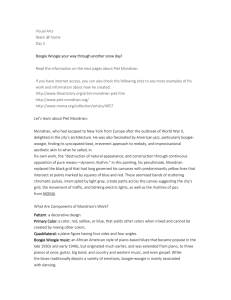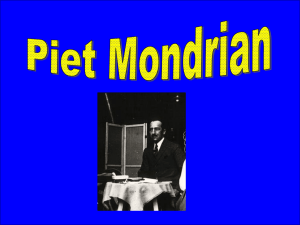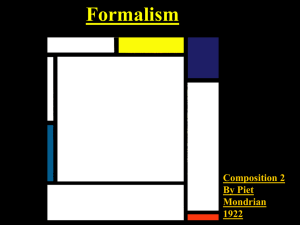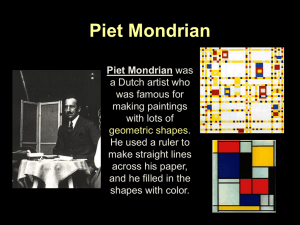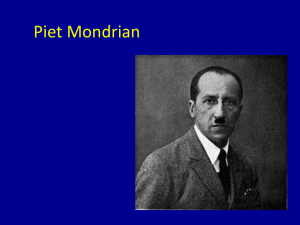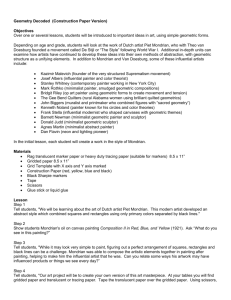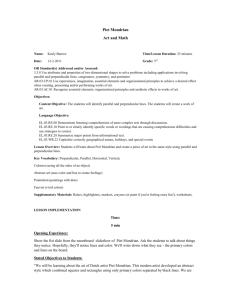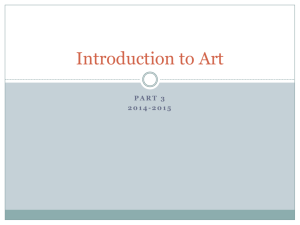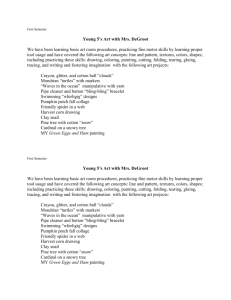Piet Mondrian
advertisement
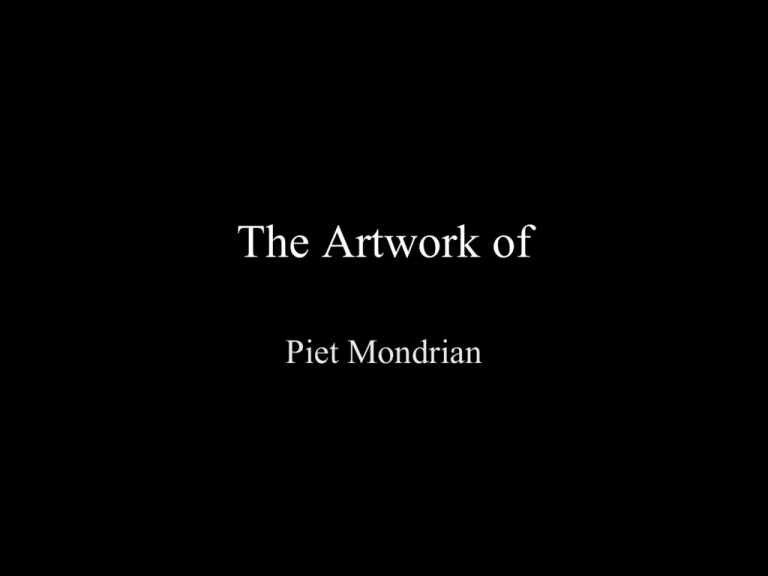
The Artwork of Piet Mondrian Piet Mondrian • Piet Modrian was a Dutch artist who changed the way many people think about art. • Mondrian was introduced to art at an early age by his father who was a drawing teacher. Red Tree, 1908 • Mondrian was influenced by another Dutch artist Vincent Van Gogh. • In his painting Red Tree (above), Mondrian used similar brush strokes as created by Van Gogh in his Olive Trees painting from 1889 (below). Blue Tree, 1911 • In 1911, Mondrian moved to Paris. • He continued to paint trees but the paintings became increasingly abstract. Gray Tree, 1911 • Pablo Picasso was another artist who had a big impact on Mondrian. • Picasso’s influential cubist paintings like the Woman with Mandolin painted in 1909 (above) can be seen in Mondrian’s Gray Tree (below). The Blossoming Apple Tree, 1912 • In abstract art, little or no attempt is made to represent images realistically, and objects are often simplified or distorted. The Blooming Apple Tree, 1912 • In the previous image The Blossoming Apple Tree and in this one The Blooming Apple Tree, the realistic image of the tree has disappeared and only the idea of the colors, shapes, and lines of the tree are illustrated. Composition No. II; Composition in Line and Color , 1913 • The idea of nature and trees still influenced these abstract paintings. Composition #8, 1914 • Mondrian began to use geometric rectangles and squares to make grid paintings like these using what are known as Earth Tones. Composition #10 in Black & White, 1914 • Colors with elements of browns, tans and grays are examples of Earth Tones. Composition with Gray and Light Brown, 1918 • Earth Tones resemble those colors found in nature. Gray Lines, 1918 • In this early painting Mondrian uses are gray lines that tend to fade. Composition A: Composition with Black, Red, Gray, Yellow, and Blue, 1920 • This painting also uses gray color and nearly all of them are colored; only a few are left white. Tableau II, 1921 • The word Tableau is French for “Table” Composition with Blue, Yellow, Black, and Red, 1922 Composition with Red, Yellow, and Blue, 1927 Composition with Blue 1935 Broadway Boogie Woogie 1942-1943
